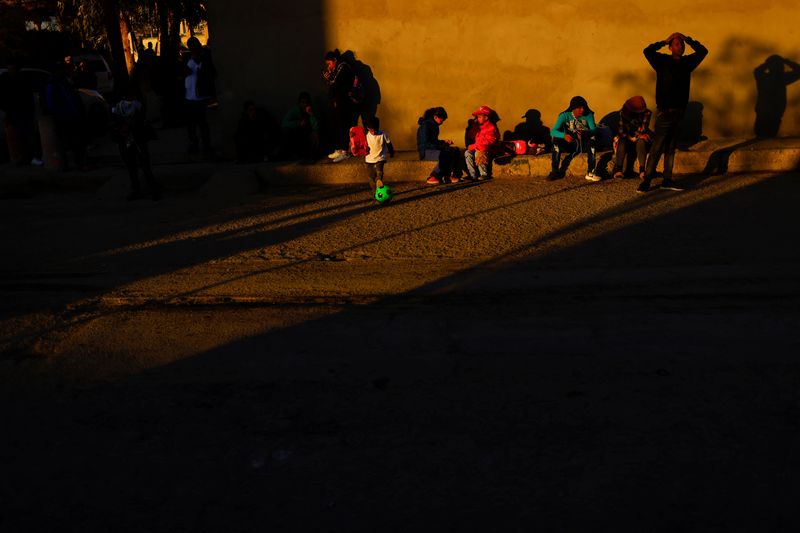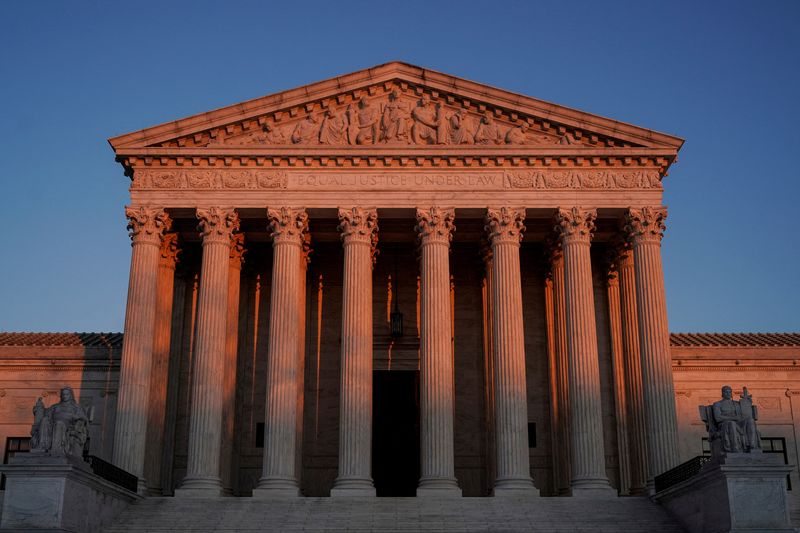By John Kruzel
WASHINGTON (Reuters) - The U.S. Supreme Court on Monday rebuffed an effort by a group of Republican state officials to revive former President Donald Trump's hardline policy that barred certain immigrants deemed likely to require government benefits from gaining lawful permanent residency.
The justices turned away an appeal by 14 Republican state attorneys general, led by Ken Paxton of Texas, of a lower court ruling against their request to mount a legal defense of Trump's "public charge" rule after President Joe Biden's administration stopped defending the measure and later rescinded it.
The policy was put into effect by Trump's administration in February 2020 and ended by Biden's in March 2021.
Paxton was joined by attorneys general from Alabama, Arizona, Arkansas, Indiana, Kansas, Kentucky, Louisiana, Mississippi, Montana, Ohio, Oklahoma, South Carolina and West Virginia.
Trump's administration in a 2019 rule significantly widened the definition of "public charges" who were ineligible for legal U.S. permanent residency, or green cards. The expanded restriction applied to immigrants who receive a government benefit including the Medicaid health insurance program for the poor and food stamps for more than 12 months in any three-year period.
A federal judge in Illinois vacated the rule nationwide. The judge later rejected the Republican bid to intervene, saying the request by the state officials came too late, and the Chicago-based 7th U.S. Circuit Court of Appeals last June agreed.
The Republican officials had told the justices that they should be able to defend Trump's rule, saying it has been estimated to save states collectively about $1 billion annually.
The Supreme Court last year heard arguments over a separate bid by Republican state officials to intervene in defense of Trump's public charge rule but ultimately dismissed the case without resolving the issue.

Biden's administration last September adopted a narrower rule under which immigrants would be deemed public charges only when they are likely to become primarily dependent on the government for subsistence, mirroring a 1999 regulation that had been in place for two decades. Texas on Thursday filed a separate federal lawsuit challenging Biden's rule.
Republicans have sharply criticized the immigration policies of Biden, who came into the White House vowing to undo some of the hardline rules pursued by Trump.
